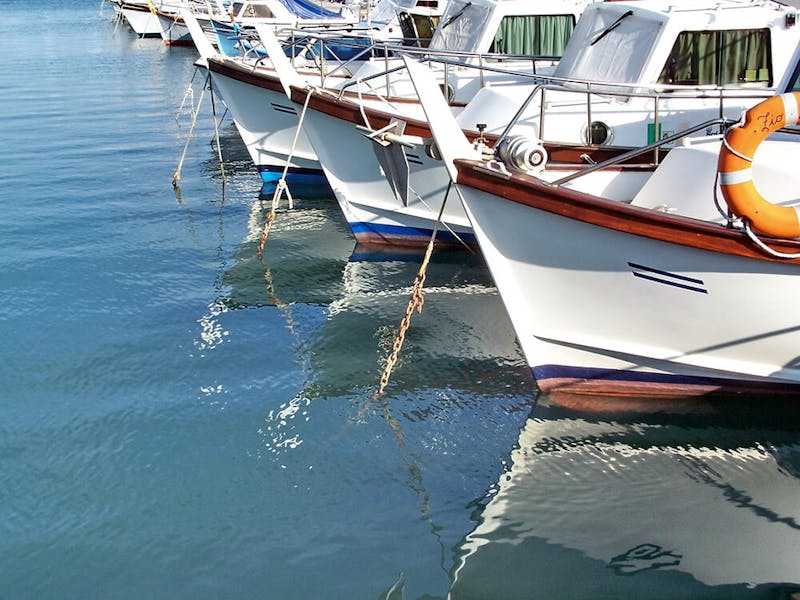
Many people love to go boating on the lake. Driving through the waves and anchoring somewhere calm to hang out with friends is the best way to celebrate the weekend. If you’re old enough, drinking on the boat can be fun, but you should know the dangers before partaking.
If you drink too much, boating becomes extremely dangerous. It might seem obvious, but boat drivers should always stay sober. Even passengers should not get too intoxicated because impaired judgement and balance can lead to deadly situations anywhere, but especially on the water. Although it sounds like fun at first, drinking alcohol while boating has many dangers.
Boating Accidents from Drinking Alcohol
Even if you’re anchored in one place, drinking and boating can still be dangerous. Drunk passengers with slow reaction times and limited balance could slip and fall and hurt themselves on the deck. They could stumble off the edge and into the water. If others on the boat are drunk, they are less able to help someone who fell overboard.
Driving a boat requires extreme attention and caution. The American Boating Association reports that of the 4,463 boating accidents nationwide in 2016, 65% resulted in injuries, and 15% resulted in death. Alcohol use is listed as the leading contributing factor to boating accidents. Possible injuries of a boating accident include:
- Sprains and strains
- Lacerations
- Burns
- Broken bones
- Loss of limbs
- Traumatic brain injury
- Spinal cord injury
- Drowning
Boating safely should be everyone’s number one goal. No matter who was driving the boat, the owner is responsible for any damages or harm. So it’s in the owner’s best interests to keep the driver sober. Otherwise, the owner could be liable for the damages caused by their own or the driver’s negligence.
Arkansas Alcohol Boating Laws
When it comes to driving anything, you should never operate a vehicle while drunk. Driving a boat is no different because boating under the influence (BUI) follows the same limits as drunk driving. A person over 21 cannot operate a boat when their blood alcohol concentration (BAC) is over 0.08%. If you’re under 21, your BAC must be under 0.02% when driving a boat.
Generally speaking, it takes 3 drinks in one hour to put a man over the 0.08% limit, and 2 drinks in one hour to put a woman over the limit. Of course, your tolerance could vary depending on weight, metabolism, and other factors. But in this case, it is best to play it safe and stay completely sober if you plan on operating a boat.
Even if your BAC is below the legal limit, you can still be considered intoxicated if your reactions, motor skills, or judgement are impaired and putting others at risk. As outlined by the Network for Public Health Law, here are the levels of punishment for boating under the influence offenses:
- First offense. Six-month license suspension, prison for 24 hours or up to one year, and a fine between $150 and $1000. You may have to install an ignition interlock restriction in your boat or vehicle.
- Second offense. 24-month license suspension, prison for a week or up to one year, and a fine between $400 and $3,000.
- Third offense. 30-month license suspension, prison for 90 days or up to one year, and a fine between $900 and $5,000.
Arkansas Code lists penalties for up to six subsequent offenses, which takes the offense from an unclassified misdemeanor to a Class B felony. Offenses must occur within five years of each other in order to be considered subsequent. DUI offenses can also be included when deciding punishment.
For any other questions about boating in Arkansas, you can find the Official Boating Handbook of the Arkansas Game and Fish Commission here.
Who to Call for Legal Help
Boating accidents can be debilitating, especially if the accident was caused by a drunk driver. If you’ve been injured while boating in Arkansas you could have serious injuries, property damage, and trouble coping. You deserve to physically and emotionally heal in your own time, but that can be hard with medical bills and lost wages. At McMath Woods P.A. in Little Rock, we can take care of the legal side of things while you focus on getting back to your normal life. Contact us today so we can help you get the compensation you deserve.

